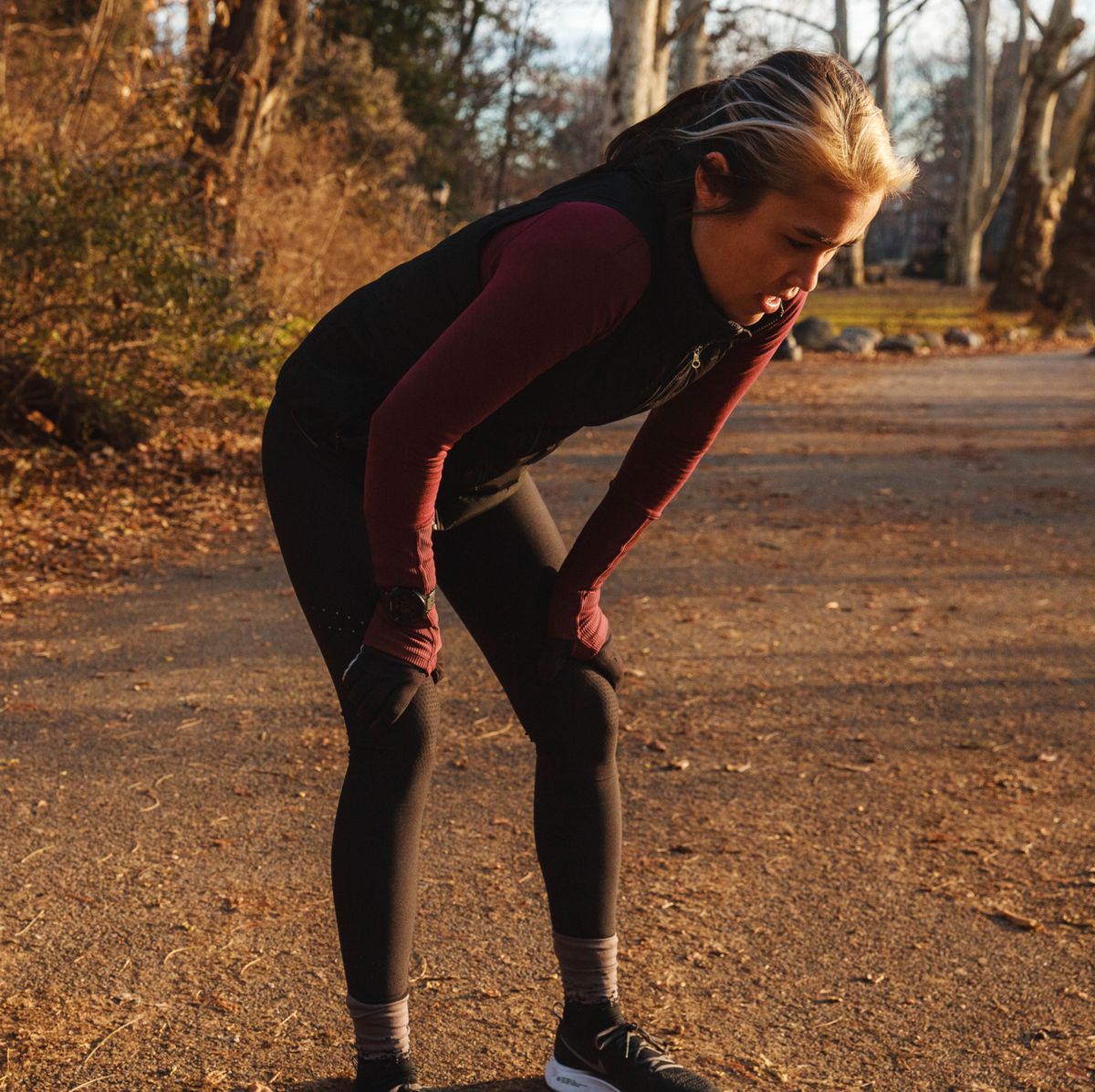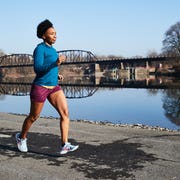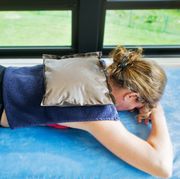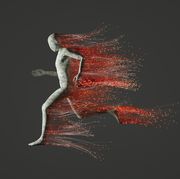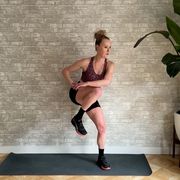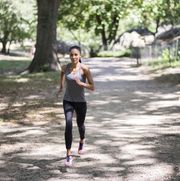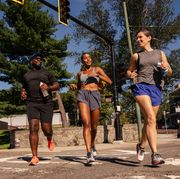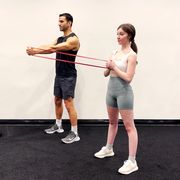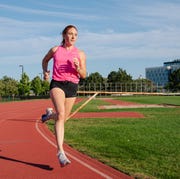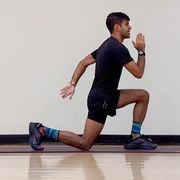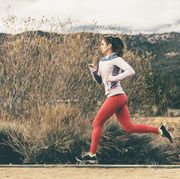Running in the cold can be exhilarating—the frigid air hitting your face offers an instant wake-up call. And finishing a winter run that forced you to brave the elements is also rewarding. But sometimes, you can be left with an additional gift: an uncomfortable cough.
Coughing after running in the cold is actually common, even if it leaves you questioning whether you got an illness within the last few hours. To help you understand what’s going on that leads to a cough after a run, plus learn strategies for avoiding it in the first place, let this information, straight from a doctor, clue you in so you can sidestep the discomfort.
Why do I start coughing after running in cold weather?
You might not cough after running in the warmer seasons, but cold air—especially cold dry air that accompanies the arctic blasts pushing down from northern latitudes—can trigger coughing due to bronchospasm, which is when the tubes that bring air in and out of your lungs constrict. The coughing after running could also stem from asthma.
Many people pushed to high respiratory rates in cold conditions will develop contractions or spasms in the smooth muscle that surrounds the airways and also produce extra mucous in the lining of the lung tubes that result in wheezing and/or coughing. This is commonly known as exercise-induced asthma or exercise-associated bronchospasm. This can be a form of intermittent asthma or simply a bout of bronchospasm from changes in the airway.
The difference between asthma and bronchospasm is that the latter can be a symptom of former, so while all people with asthma can get a bronchospasm, not everyone who gets a bronchospasm has asthma, according to the Cleveland Clinic.
Coughing after exercise in cold weather occurs frequently in competitive Nordic skiers who are training and competing at high exertion levels that require high respiratory rates to supply oxygen to the active leg and arm muscles, especially when they are training at higher altitudes where the air is usually extra dry.
The cough can begin during exercise or shortly after the exercise session ends and can last for several hours.
The bronchospasm is thought to be caused by drying of the airways and/or cooling of the airways resulting in changes in the concentration of intracellular contents and/or release of pro-inflammatory mediators that promote changes in the airway.
There are several ways to test for this condition that involve some form of inhaling dry air. A common method is using a spirometer, an instrument for measuring the air capacity of the lungs, before and after exercise. This is often easier said than done, as it is sometimes difficult to replicate the conditions that trigger the cough. This is especially true for those who only cough during or following competitions.
There are other causes of “wheezing” during or following exercise that can be difficult to distinguish from exercise bronchospasm, like vocal cord dysfunction. Vocal cord dysfunction occurs when the vocal cords come together during inspiration and causes “stridor,” a harsh grating sound, on inspiration as opposed to the expiratory wheeze of asthma.
How do I treat my cough after running in the cold?
First, to prevent coughing after running, you can try wearing a scarf over your mouth and nose to prewarm and prehumidify the cold air a bit before it enters the respiratory tree. However, some runners do not tolerate this well as it gives a sense of air restriction.
Otherwise, avoiding the postrun cough is as simple as slowing your pace a bit to reduce the air exchange demands and waiting for spring before you work on running faster—or you could take your run inside to the treadmill if you want to keep running at a high intensity.
If you already have the cough and suspect it is cold-induced, just take a few rest days, and it should resolve on its own.
On the other hand, an exercise-induced cough may be a marker for asthma, because both dry air and cold air (along with pollens, animal dander, upper respiratory infections, irritants such as perfume, tobacco, and other smoke, and air pollution) are triggers for asthma attacks.
While it is possible to have a bronchospasm only during exercise, it is important to remember that nearly everyone with asthma will have exercise-induced asthma if pushed hard enough, even fit runners. If you often cough after cold runs, it’s important to meet with your physician to talk about your symptoms and determine if you have underlying asthma. Your doctor can then help you determine if you’re a candidate for intervention with medication or the best treatment for your cough after running.
William O. Roberts, M.D., is board certified in family and sports medicine, and is a professor in the department of family medicine and community health at the University of Minnesota with expertise in ice hockey, marathon injury, heat stroke, and youth sports participation.
